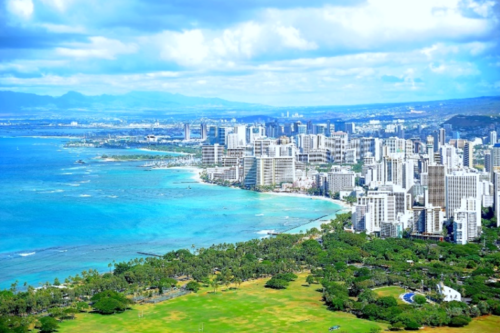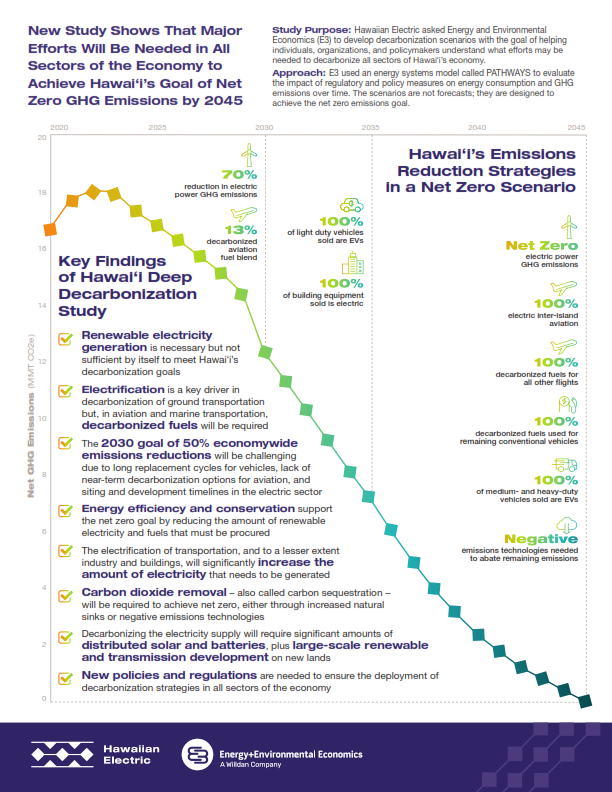
In a new study published last week for Hawaiian Electric, E3 developed long-term, economywide decarbonization scenarios that meet Hawai’i’s target of net-zero greenhouse gas (GHG) emissions by 2045. The goals of the study were to consider the options for emissions reductions in each sector of the economy, to explore the range of potential electric loads in a net zero future, and to explore what kinds of policy or regulatory changes are needed to support decarbonization.
To conduct the study, E3 used the PATHWAYS model to analyze the impact that different policy measures would have on emissions, electric loads, and fuel demands in Hawai’i. The PATHWAYS model helps to identify impacts and implications of specified climate scenarios. For this study, E3 used PATHWAYS to model a pair of different trajectories for the state with varying reliance on electricity vs. decarbonized fuels to support decarbonization of different sectors. E3’s analysis considered emissions from sources including electricity, aviation, marine vessels, vehicles, buildings, industry, agriculture, waste, and land use. In the modeled scenarios that achieve carbon neutrality, E3 found that meeting Hawai’i’s climate goals will require transformations of all sectors of the economy.
Other key findings from E3’s report include:
- Renewable electricity generation will be necessary to support the transition to net zero but will not be sufficient by itself to meet the target
- In both the Aggressive and Conservative Electrification scenarios, electrification will play a major role in the decarbonization of sectors such as transportation and industry
- A net-zero future for Hawai’i will also require a substantial quantity of decarbonized fuels to support emissions reductions in the aviation and marine sectors, even if inter-island flights and trips can be electrified. Aviation and marine represent a relatively large share of Hawai’i’s GHG emissions compared to the rest of the country
- Energy efficiency and conservation will play a crucial role in supporting decarbonization by reducing reliance on renewable electricity and decarbonized fuels
- Some amount of carbon dioxide removal, through natural carbon sinks and/or negative emissions technologies, will likely be required to meet the net zero target
- Renewable electricity generation, sustainable fuels production, and negative emissions technologies all have significant land use implications on an island state that already faces land uses constraints, warranting a careful consideration of tradeoffs and further study of project siting and permitting.
Looking forward, E3 will be supporting the Hawai’i State Energy Office in developing a detailed analysis of decarbonization pathways as required under Act 238 (2022). As the new study progresses, more information will be made available on the State Energy Office website. The complete Hawaiian Electric decarbonization report is available to download, and more context for the study is available in Hawaiian Electric’s press release or on the study’s landing page. E3’s Ari Gold-Parker, Rawley Loken, Jen Cardona, John Stevens, and Amber Mahone contributed to the report and analysis.



